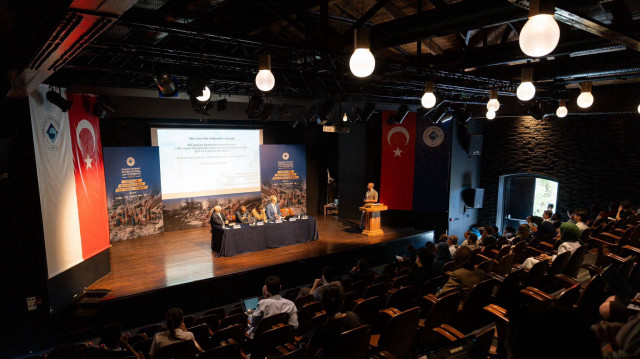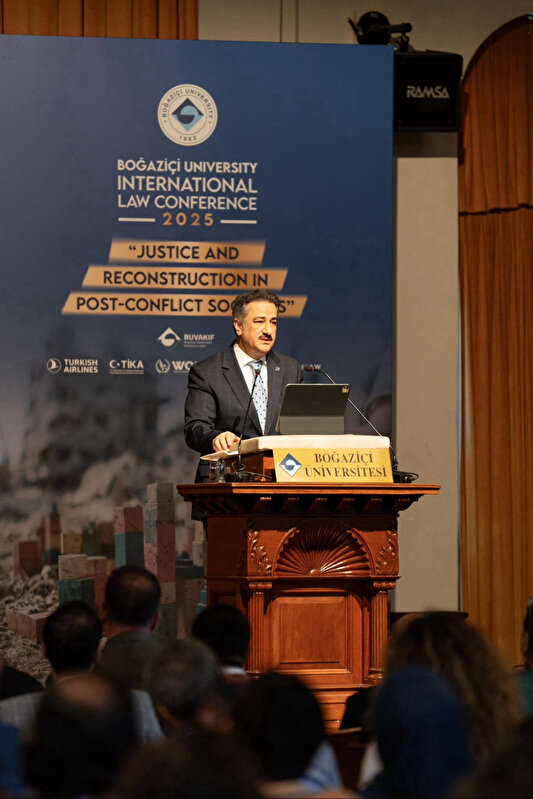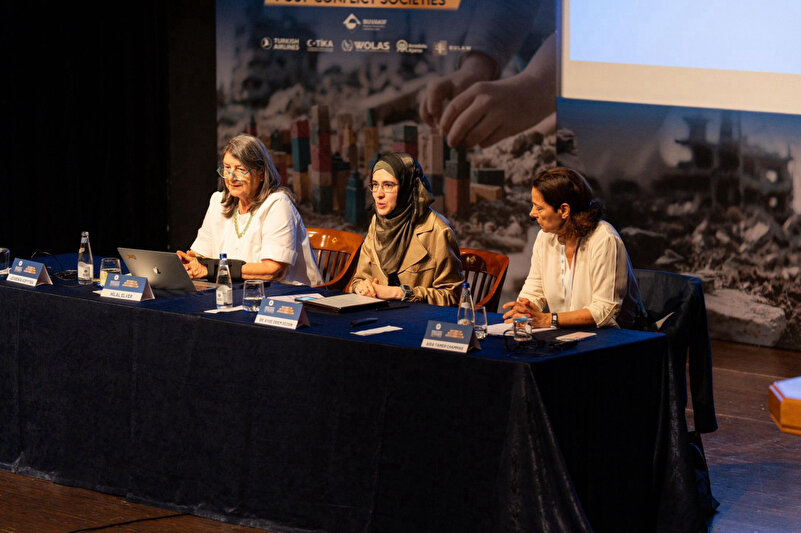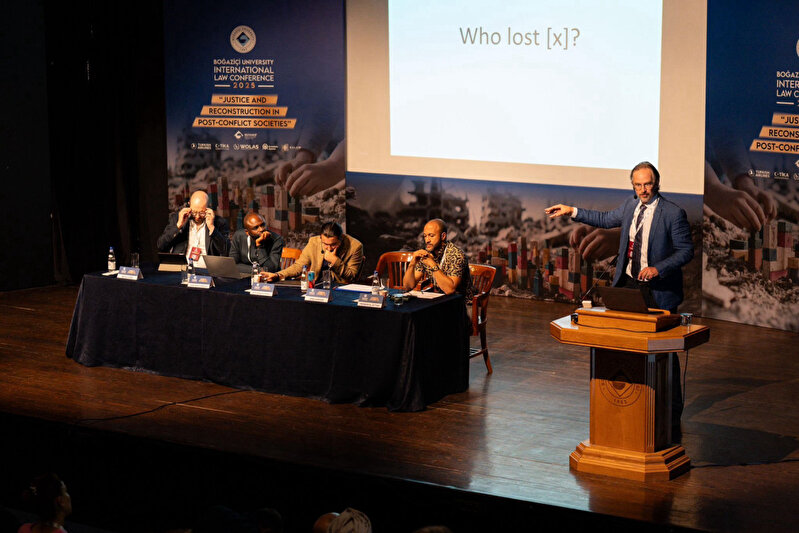
The second edition of the Boğaziçi International Law Conference (BILC 2025), organized by the Boğaziçi University Faculty of Law with the support of Albayrak Group, took place on July 5–6, 2025, under the theme “Justice and Reconstruction in Post-Conflict Societies.” The event brought together prominent legal scholars, political scientists, and field experts from top institutions around the world for two days of intense and thought-provoking debate.
The conference featured a roster of influential speakers including Prof. Richard Falk (Princeton University), Prof. Carsten Stahn (Leiden University), Prof. Satvinder Juss (King’s College London), Prof. Mohsen Al Attar (Xi’an Jiaotong-Liverpool University), Dr. Yi Lu (Peking University), and Dr. Yaser Tabbara (Omran Center for Strategic Studies).
Participants explored the role of international law in shaping justice systems and rebuilding war-torn societies, with sessions hosted by Boğaziçi University’s Faculty of Law. The conference created space for interdisciplinary dialogue on the ethical, legal, and political complexities involved in post-conflict scenarios.

Boğaziçi University Rector Prof. Dr. Mehmet Naci İnci and Law Faculty Dean Prof. Dr. Ali Emrah Bozbayındır delivered opening remarks emphasizing the conference’s purpose. Prof. İnci underlined the relevance of the theme:
“From Gaza to Syria, Ukraine to Myanmar and Sudan, numerous regions are shaken by conflict. These wars cause not only physical and psychological destruction but also deep wounds in social development. Justice and reconstruction are among today’s most urgent global concerns.”
He also outlined the vision of Boğaziçi’s newly founded law faculty:
“Our Faculty of Law is not only committed to high-quality legal education but also to rethinking universal dimensions of justice and developing new philosophies of fairness.”
Thanking the participating institutions, Prof. İnci added:
“We are proud to host scholars from institutions like Princeton, Cornell, Oxford, King’s College London, Leiden, Ottawa, and Pretoria. This participation turns our conference into a truly global platform for dialogue.”

Throughout the event, speakers emphasized the strategic role of international law in ensuring sustainable peace. Prof. Falk noted,
“International law is not only essential in resolving conflicts but also in ensuring that the processes are just and durable.”
Prof. Satvinder Juss focused on refugee rights, saying,
“International law must play a larger role in securing the safe return and reintegration of refugees in post-conflict societies.”
One of the most compelling interventions came from Prof. Siba N’Zatioula Grovogui of Cornell University, who critiqued the Western-centric foundations of international law.
“International law is a universal heritage built from multiple traditions. Yet, we have treated only one tradition as its beginning and end. That is a grave mistake.”
Prof. Grovogui highlighted how non-Western legal traditions have been ignored, specifically referring to the rights of Palestinians under international law:
“Palestinians have the right to self-defense under the UN Charter. Good people know this. Yet today, you cannot even mention these rights in some U.S. universities.”
He called for not just critique but a proactive redefinition of the legal framework:
“It is not enough to criticize. We must defend and rebuild international law from its real historical foundations.”
Under the moderation of Prof. Carsten Stahn, various sessions tackled issues such as international criminal law, structural justice reform, refugee rights, and the role of local actors in transitional justice.
Prof. Mohsen Al Attar discussed the significance of local agency in achieving global justice, while Prof. Yi Lu addressed the economic dimensions of post-conflict recovery, analyzing China’s Belt and Road Initiative as a case study for international economic involvement in reconstruction.

Boğaziçi University’s Faculty of Law continues to assert its influence in the global legal arena. Dean Prof. Dr. Ali Emrah Bozbayındır reflected on the conference’s impact:
“Our faculty doesn’t just push the academic boundaries of international law—it also approaches these issues with a deep sense of societal responsibility.”
Supported by Albayrak Group, the BILC 2025 conference not only strengthened Boğaziçi University’s international profile but also offered a critical space to question and reimagine the frameworks that govern justice in a fractured world.







